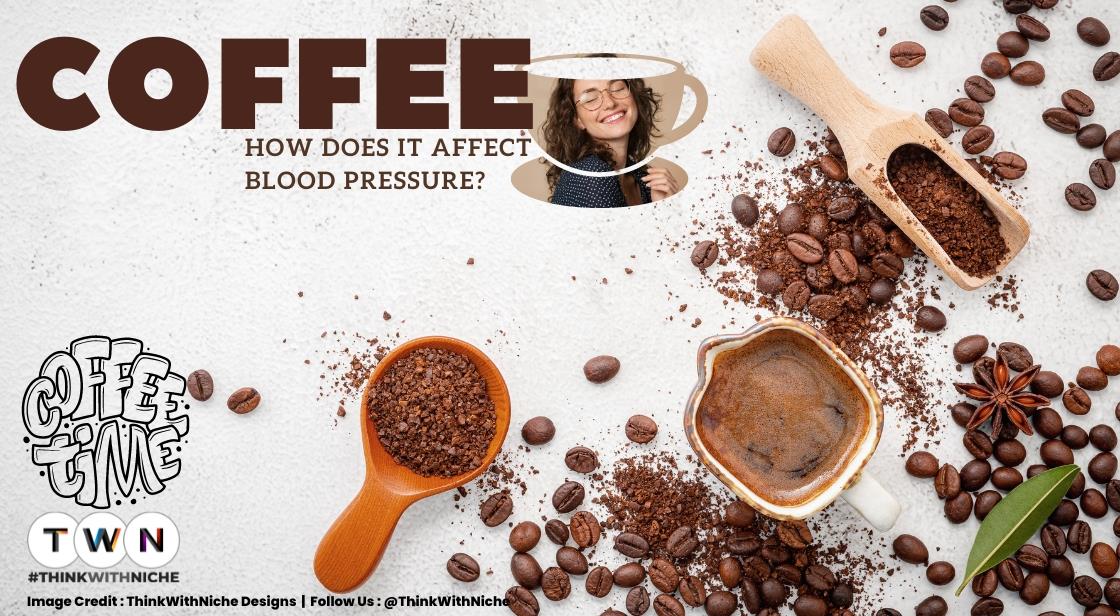Coffee- How Does It Affect Blood Pressure?

Blog Post
For many of us, a cup of coffee is the perfect start to the day. The aroma and taste of coffee can be invigorating, and for some, it's an essential source of energy to get through the day. But have you ever wondered how your daily cup of joe affects your blood pressure?
Coffee contains caffeine, which is a stimulant that can affect blood pressure in different ways. While the exact effect of coffee on blood pressure can depend on various factors, including a person's overall health, the amount of coffee consumed, and individual sensitivity to caffeine, it's essential to understand the potential implications of regular and excessive coffee consumption.
In this blog post, we'll explore how caffeine affects blood pressure and the long-term implications of high blood pressure. We'll also discuss the various factors that can influence the effect of coffee on blood pressure, including individual lifestyle factors such as diet, exercise, and stress.
Additionally, we'll provide some tips on how to prevent high blood pressure or manage it if you already have it. Maintaining a healthy weight, eating a healthy diet, limiting sodium intake, regular exercise, managing stress, limiting alcohol intake, and quitting smoking are all effective ways to manage high blood pressure.
While coffee can have some health benefits when consumed in moderation, it's important to consider the potential downsides of excessive coffee consumption, such as caffeine sensitivity, sleep disruption, acid reflux, dehydration, and addiction.
If you're concerned about the effect of coffee on your blood pressure, monitoring your blood pressure before and after consuming coffee may be helpful and, as always, it's essential to talk to your doctor about whether coffee consumption is safe for you, particularly if you have pre-existing medical conditions that may be affected by changes in blood pressure.
"Coffee and Blood Pressure: How does your daily cup of joe affect your health?"
Join us as we explore the relationship between coffee and blood pressure, and discover how you can take control of your health by making informed choices about your coffee consumption.
When you walk into your local coffee shop, the smell of coffee seems to hit your senses hard enough to wake you up. Coffee is generally a drink that many consume to boost our energy levels. However, regular and excessive use of coffee can have its implications.
Coffee contains caffeine, which is a stimulant that can affect blood pressure in different ways. The exact effect of coffee on blood pressure can depend on a variety of factors, including a person's overall health, the amount of coffee consumed, and individual sensitivity to caffeine.
Coffee- How Does It Work?
Generally, caffeine is known to cause a short-term increase in blood pressure, as it can narrow the blood vessels and increase the activity of the heart. This effect can last for a few hours after consumption, and can be more intense in people who are not regular coffee drinkers.
However, the long-term effects of coffee on blood pressure are less clear. Regular coffee consumption may have a small, long-term effect on blood pressure, particularly in people who are sensitive to caffeine. On the other hand, the effect could be negligible or nonexistent for some.
It's important to note that the effect of coffee on blood pressure can vary widely depending on individual factors. Other lifestyle factors such as diet, exercise, and stress can also impact blood pressure. If you have concerns about your blood pressure or the impact of coffee on your health, it's always a good idea to talk to a healthcare provider.
In order to access affordable healthcare, you can opt for health insurance. This can help you tap into various benefits such as hospitalisation coverage, chronic illness coverage, cashless treatment, etc.
Cashless treatments are provided as a cashless service under health insurance. You are not required to pay first and claim reimbursement later. You may claim cashless health insurance and allow the hospital to settle the bill with the insurer.
The Long-Term Implications
High blood pressure, also known as hypertension, is a common condition that can have serious health consequences if left untreated. Over time, high blood pressure can damage blood vessels and organs, leading to a range of health problems.
Some possible consequences of untreated high blood pressure include:
-
Increased Risk of Heart Disease
High blood pressure can cause damage to the arteries that supply blood to the heart, increasing the risk of heart disease, heart attacks, and heart failure.
-
Increased Risk of Stroke
High blood pressure can also increase the risk of stroke by damaging the blood vessels that supply blood to the brain.
-
Kidney Damage
High blood pressure can damage the blood vessels in the kidneys, leading to kidney disease and even kidney failure.
-
Vision Problems
High blood pressure can damage the blood vessels in the eyes, leading to vision problems and even blindness.
-
Cognitive Impairment
High blood pressure has been linked to an increased risk of cognitive impairment and dementia.
It's important to monitor your blood pressure regularly and seek medical attention if you have concerns about high blood pressure. Lifestyle changes such as a healthy diet, regular exercise, and stress management can help to manage blood pressure, and medication may be necessary in some cases.
The Way Forward
There are several things you can do to help prevent high blood pressure or to manage it if you already have it.
-
Maintain a Healthy Weight
Being overweight or obese can increase your risk of high blood pressure, so maintaining a healthy weight through regular exercise and a balanced diet can be helpful.
-
Eat Healthy Food
A diet rich in fruits, whole grains, vegetables, low-fat dairy, and lean protein can help to reduce your risk of high blood pressure.
-
Limit Sodium Intake
Consuming too much sodium can raise your blood pressure, so it's important to limit sodium in your diet by avoiding processed foods, adding less salt to your meals, and reading nutrition labels.
-
Exercise Regularly
Regular physical activity can help to lower blood pressure, so aim for at least 150 minutes of moderate-intensity exercise each week.
-
Manage Stress
Stress can contribute to high blood pressure, so finding healthy ways to manage stress such as meditation, deep breathing exercises, or yoga can be helpful.
-
Limit Alcohol Intake
Drinking too much alcohol can raise your blood pressure, so it's important to limit alcohol intake to moderate amounts.
-
Quit Smoking
Smoking can damage blood vessels and increase blood pressure, so quitting smoking can have a positive impact on blood pressure as well as overall health.
If you have concerns about your blood pressure, it's always a good idea to talk to your healthcare provider about ways to manage and reduce your risk. They may recommend additional lifestyle changes or medication if necessary.
Other Reasons Why Coffee Might Not Be Good For You
Whether or not you should stop drinking coffee depends on a variety of factors, including your individual health, how much coffee you're drinking, and how sensitive you are to caffeine. While coffee can have some health benefits when consumed in moderation, there are also some potential downsides to consider.
Here are some reasons why you might consider reducing or eliminating your coffee intake.
-
Caffeine Sensitivity
Some people are more sensitive to caffeine than others and may experience negative effects such as anxiety, jitters, or insomnia when consuming coffee.
-
Sleep Disruption
The stimulating effects of caffeine can interfere with sleep, particularly if consumed later in the day.
-
Acid Reflux
Coffee can worsen acid reflux symptoms in some people due to its high acidity.
-
Dehydration
Caffeine is a diuretic, which means it can increase urine output and potentially lead to dehydration if not consumed in moderation.
-
Addiction
Regular coffee consumption can lead to dependence on caffeine, with withdrawal symptoms such as headaches and irritability if coffee is not consumed.
The Bottomline
In some people, particularly those with hypertension or cardiovascular disease, coffee consumption may have a greater impact on blood pressure. It's important to note that the effect of coffee on blood pressure may also be influenced by other factors such as stress, sleep patterns, and overall diet.
If you're concerned about the effect of coffee on your blood pressure, you may want to consider monitoring your blood pressure before and after consuming coffee. You can also talk to your doctor about whether coffee consumption is safe for you, particularly if you have pre-existing medical conditions that may be affected by changes in blood pressure. In general, if you enjoy coffee in moderation and are otherwise healthy, it is unlikely to have a significant impact on your blood pressure.
You May Like
EDITOR’S CHOICE












